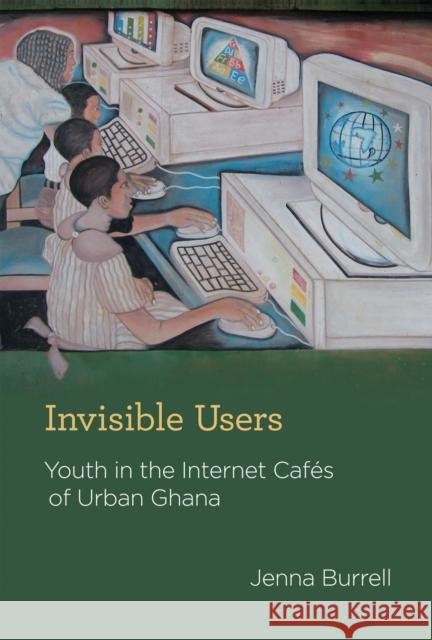Invisible Users: Youth in the Internet Cafes of Urban Ghana » książka
Invisible Users: Youth in the Internet Cafes of Urban Ghana
ISBN-13: 9780262017367 / Angielski / Twarda / 2012 / 248 str.
The urban youth frequenting the Internet cafes of Accra, Ghana, who are decidedly not members of their country's elite, use the Internet largely as a way to orchestrate encounters across distance and amass foreign ties--activities once limited to the wealthy, university-educated classes. The Internet, accessed on second-hand computers (castoffs from the United States and Europe), has become for these youths a means of enacting a more cosmopolitan self. In Invisible Users, Jenna Burrell offers a richly observed account of how these Internet enthusiasts have adopted, and adapted to their own priorities, a technological system that was not designed with them in mind. Burrell describes the material space of the urban Internet cafe and the virtual space of push and pull between young Ghanaians and the foreigners they encounter online; the region's famous 419 scam strategies and the rumors of "big gains" that fuel them; the influential role of churches and theories about how the supernatural operates through the network; and development rhetoric about digital technologies and the future viability of African Internet cafes in the region. Burrell, integrating concepts from science and technology studies and African studies with empirical findings from her own field work in Ghana, captures the interpretive flexibility of technology by users in the margins but also highlights how their invisibility puts limits on their full inclusion into a global network society.











